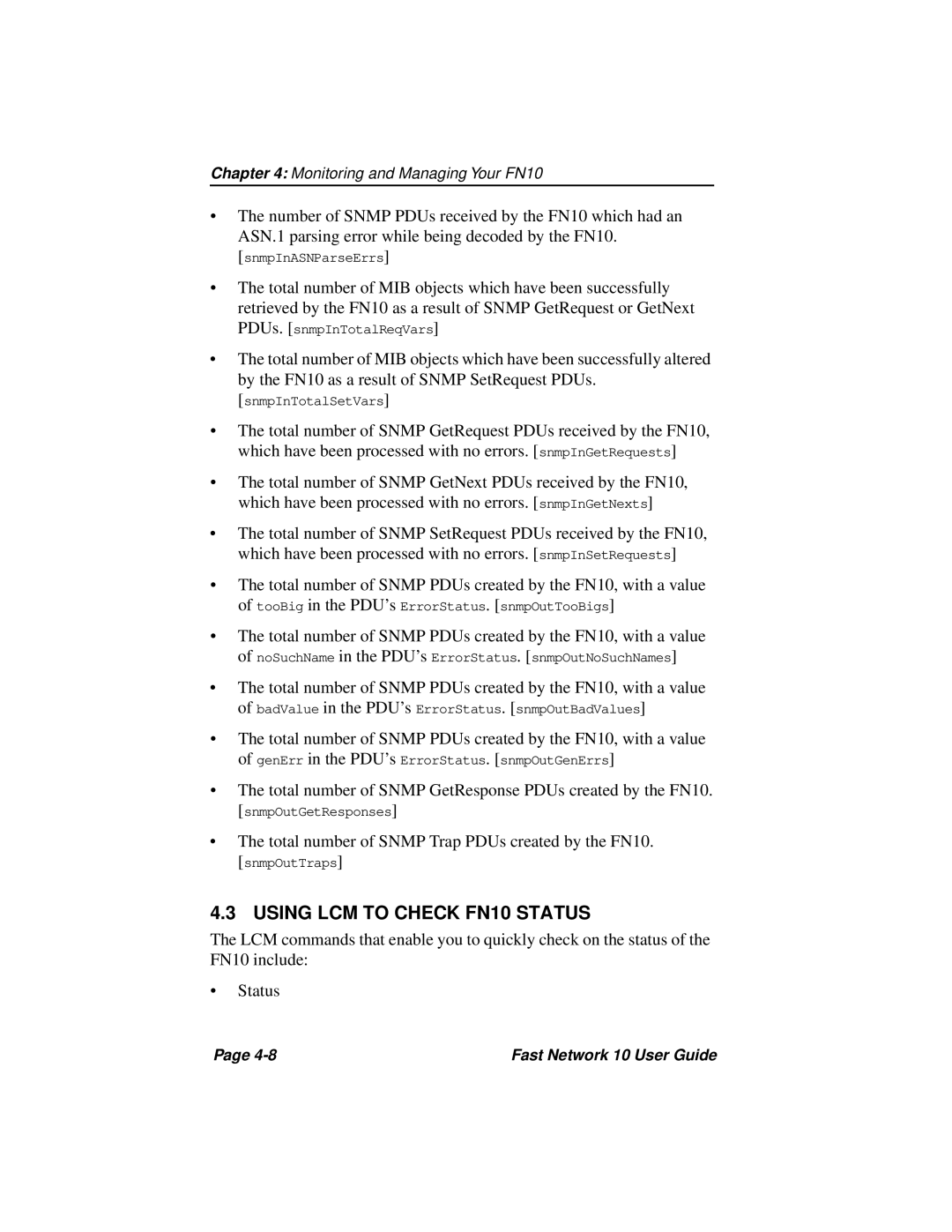Chapter 4: Monitoring and Managing Your FN10
•The number of SNMP PDUs received by the FN10 which had an ASN.1 parsing error while being decoded by the FN10. [snmpInASNParseErrs]
•The total number of MIB objects which have been successfully retrieved by the FN10 as a result of SNMP GetRequest or GetNext PDUs. [snmpInTotalReqVars]
•The total number of MIB objects which have been successfully altered by the FN10 as a result of SNMP SetRequest PDUs. [snmpInTotalSetVars]
•The total number of SNMP GetRequest PDUs received by the FN10, which have been processed with no errors. [snmpInGetRequests]
•The total number of SNMP GetNext PDUs received by the FN10, which have been processed with no errors. [snmpInGetNexts]
•The total number of SNMP SetRequest PDUs received by the FN10, which have been processed with no errors. [snmpInSetRequests]
•The total number of SNMP PDUs created by the FN10, with a value of tooBig in the PDU’s ErrorStatus. [snmpOutTooBigs]
•The total number of SNMP PDUs created by the FN10, with a value of noSuchName in the PDU’s ErrorStatus. [snmpOutNoSuchNames]
•The total number of SNMP PDUs created by the FN10, with a value of badValue in the PDU’s ErrorStatus. [snmpOutBadValues]
•The total number of SNMP PDUs created by the FN10, with a value of genErr in the PDU’s ErrorStatus. [snmpOutGenErrs]
•The total number of SNMP GetResponse PDUs created by the FN10. [snmpOutGetResponses]
•The total number of SNMP Trap PDUs created by the FN10. [snmpOutTraps]
4.3 USING LCM TO CHECK FN10 STATUS
The LCM commands that enable you to quickly check on the status of the FN10 include:
•Status
Page | Fast Network 10 User Guide |
